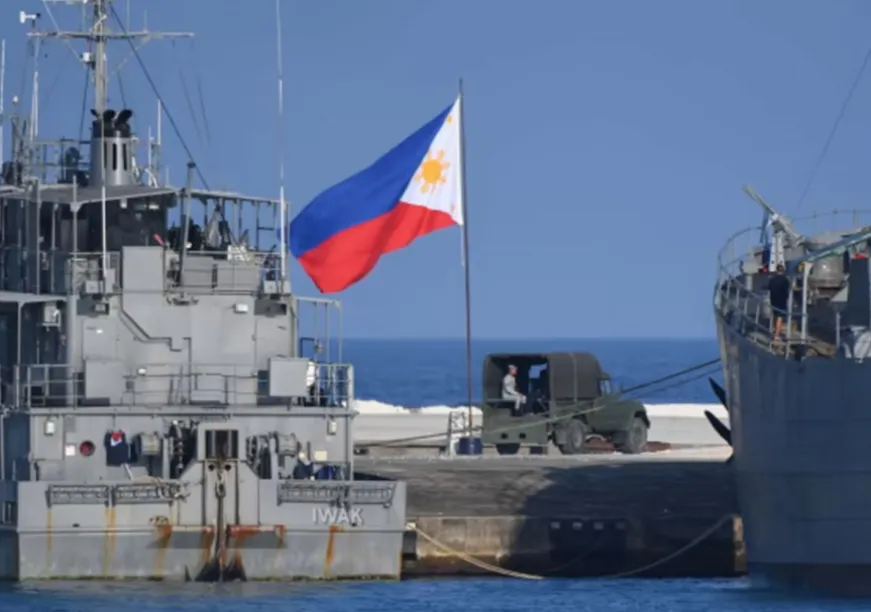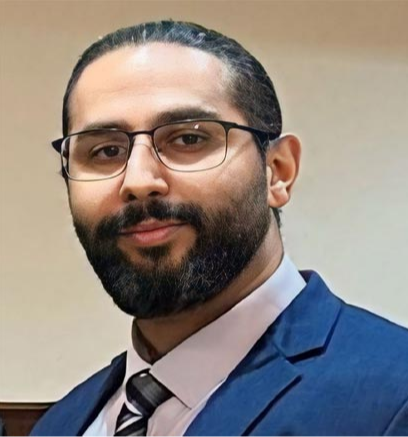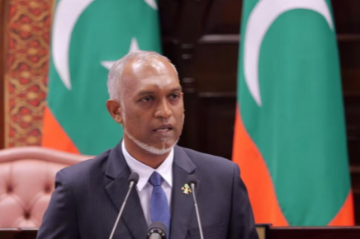
On 5 January, the Indian Navy thwarted attempts by pirates to hijack the Liberian-flagged MV Lila Norfolk in the Arabian Sea of the Western Indian Ocean Region (IOR). Among the 21 crew members of the merchant vessel, six were Filipino nationals. While piracy has been a problematic reality in the IOR, the Houthi’s ongoing attacks on multi-national merchant ships in the Red Sea are set to exacerbate the security conditions of the IOR further. It will thus be paramount for the Philippines to forge and operationalise a proactive, westward-looking foreign policy at a time when the IOR's security is faced with notable challenges.
Since its independence in 1946, the Philippines’ national security perception has been undergoing significant changes. One of the most notable shifts took place in 2010, which witnessed a transition in focus from internal threats to external threats with an emphasis on maritime security. One of the most potent catalysts of this change was the apparent threat posed by a rising China with expansionist ambitions in the South China Sea. China has been militarising the contested waters while also disregarding the United Nations Convention on the Law of the Sea (UNCLOS) and the 2016 Arbitral Ruling that nullified Beijing's expansive claims over the West Philippine Sea—the portion of the South China Sea that falls under Philippines' territorial sea and 200 nautical miles Exclusive Economic Zone (EEZ).
One of the most potent catalysts of this change was the apparent threat posed by a rising China with expansionist ambitions in the South China Sea.
Given the interrelationship between threat perception and foreign policy, the security dynamics of the West Philippine Sea, along with the intensifying United States (US)-China power competition has led Manila to prioritise a predominantly Western Pacific-centric policy of external engagement. However, while the stability of the West Philippine Sea has undeniably motivated Manila to prioritise a Western Pacific-driven foreign and security policy, it is of equal necessity to identify the growing stakes of the country in the IOR. In this light, three crucial factors must be considered to forward this argument.
First, the Philippines is the world's leading supplier of seafarers. An estimated 380,000 Filipino seafarers, or over a quarter of all global merchant shipping crew members, are deployed on domestic or foreign-flagged shipping vessels. Given that the Indian Ocean accounts for over US$ 6 trillion in total yearly trade, inevitably, a large percentage of Filipino seafarers constantly transit through these waters. Accordingly, the Indian Ocean is home to a plethora of non-traditional security threats ranging from piracy and maritime terrorism to drug and gun smuggling and human trafficking. The most recent hijacking attempt of the Liberian-flagged vessel is a testament to such threats at sea. In fact, over half of the hostages taken by Somali pirates are Filipinos. Moreover, as the Houthi attacks continue, Filipino seafarers will likely be faced with more perilous journeys across the IOR.
Second, and on a similar note, over 10 percent of the Filipino population works overseas, taking up various occupations. According to the Philippine Statistic Authority, from April to September 2022, there were an estimated 1.96 million Overseas Filipino workers (OFW). Most OFWs work in Gulf countries like Saudi Arabia, the United Arab Emirates (UAE), and Oman. At the same time, around 1 percent reside in Africa—with a reasonably large community on the continent's eastern coast. However, as the war between Israel and Hamas continues to provoke the already volatile security architecture of the Middle East, concerns over the safety of OFWs have been heightened.
The Indian Ocean is home to a plethora of non-traditional security threats ranging from piracy and maritime terrorism to drug and gun smuggling and human trafficking.
Third, the IOR encompasses around 80 percent of the global maritime oil trade, while around 9.84 billion tons of cargo pass through the region's waters annually. Accordingly, developing countries in the Pacific depend on crude oil imports from the Middle East that transit through the Indian Ocean. Despite its low consumption vis-à-vis other Southeast Asian countries, the Philippines is a net energy importer—it imported over 70 percent of its total oil consumption in 2023. This illustrates how much the Philippines depends on the security of vital sea lines of communication (SLOCs) in the IOR, given that its top import sources are Saudi Arabia, the UAE, Qatar, and Oman.
Two of the three major pillars of Philippine foreign policy are the protection of Filipinos working overseas and the attainment of economic security. Thus, it will be crucial for Manila to formulate a robust and forward-looking foreign policy highlighting the importance of the IOR. While it is understandable that Manila's traditionally limited diplomatic presence in the region was due to its geography and close economic and security linkages in the Western Pacific, the rise of the Indo-Pacific geopolitical construct provides an essential opportunity for the Philippines to leverage its position as not just as a Southeast Asian country but also an Indo-Pacific middle power.
Since 2016, the Philippines has prioritized the diversification of strategic partners due to the growing uncertainties of international politics. Under the current administration of President Ferdinand Marcos Jr., Manila has put great emphasis on strengthening both security and economic ties with non-traditional partners. Manila has forged close partnerships with its Western neighbours amid this ongoing endeavour. One of the most notable developments is the strengthening of the security partnership between the Philippines and India. From the BrahMos deal to the signing of a Memorandum of Understanding (MoU) between the Philippine and Indian Coast Guards, both countries consistently seek to deepen and broaden the scope of their ties, particularly in maritime security. The Philippines is also in talks with India for the supply of seven helicopters for its coast guard, while both sides are also looking at increasing the frequency of joint maritime drills.
Manila has forged close partnerships with its Western neighbours amid this ongoing endeavour. One of the most notable developments is the strengthening of the security partnership between the Philippines and India.
The growing bilateral ties can open more opportunities for the Philippines to secure its interests in the IOR better. Since its independence, India has been steadfast in serving as a net security provider of the IOR. The Indian Navy's recent success in saving and securing the Liberian-flagged vessel is a testament to its renowned role as the first responder in the region. Given the increasing risks faced by Filipino seafarers, the Philippines will significantly benefit from deepening intelligence sharing and improving naval interoperability cooperation with India. On the diplomatic front, it should be in the Philippines' best interest to engage within IOR institutions such as the Indian Ocean Rim Association (IORA), where Singapore, Indonesia, and Thailand are members, while China, Japan, and South Korea are dialogue partners. Like India was critical in facilitating France's institutional membership, New Delhi can also be an essential bridge for Manila's potential inclusion as a dialogue partner in the IORA. Engaging in the IORA will allow the Philippines to cooperate with member and dialogue partner countries, more actively contribute towards the stability of the Indian Ocean and its SLOCs, and deepen its diplomatic footprints in the IOR.
Along with India, the Philippines has also been seeking to strengthen its security relations with the UAE, with both sides hoping to formalise an MoU on defence cooperation soon. If operationalised, this would be the first defence arrangement the Philippines will have with a Gulf country. Marcos Jr. also attended the first-ever Association of Southeast Asian Nations (ASEAN)-Gulf Cooperation Council Summit in October 2023. The UAE and Saudi Arabia are influential players in IOR and energy geopolitics. Therefore, strengthening ties with Abu Dhabi and Riyadh will provide the Philippines with more pathways to enhance cooperation towards energy security and the protection of OFWs. However, while Manila’s strategic cooperation with both Gulf countries is just beginning to illustrate its multi-dimensional characteristics, it will be necessary for the Philippines to sustain this growing momentum and eventually broaden the scope of engagement with other regional countries.
Marcos Jr. also attended the first-ever Association of Southeast Asian Nations (ASEAN)-Gulf Cooperation Council Summit in October 2023. The UAE and Saudi Arabia are influential players in IOR and energy geopolitics.
Therefore, while the Philippines has traditionally kept a low profile in the IOR, the shifts in international geopolitics call for countries to proactively adapt amidst these changes. As the Indo-Pacific continues to emerge at the centre of international security discourse, it will be vital for the Philippines to maximize this opportunity by enhancing its role as an Indo-Pacific country and increasing the representation of the IOR in Manila’s strategic calculations, given that the country has undeniable stakes not just to its east but also to its west.
Don McLain Gill is a Philippines-based geopolitical analyst, author, and lecturer at the Department of International Studies at De La Salle University (DLSU)
The views expressed above belong to the author(s). ORF research and analyses now available on Telegram! Click here to access our curated content — blogs, longforms and interviews.




 PREV
PREV


